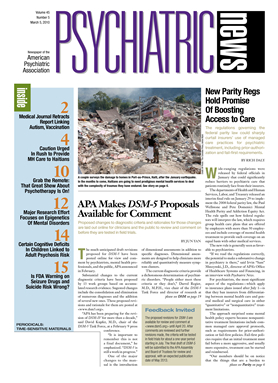The British medical journal The Lancet has formally retracted a 1998 article linking the appearance of autistic-like symptoms in children with their having received the measles-mumps-rubella (MMR) vaccine.
The retraction, issued on February 6, followed a judgment by the United Kingdom's General Medical Council's Fitness to Practise Panel that some claims in the 1998 paper were false.
The paper, whose lead author was Andrew Wakeman, M.D., was titled “Ileal-Lymphoid-Nodular Hyperplasia, Nonspecific Colitis, and Pervasive Developmental Disorder in Children.”
It reported that 12 children had been consecutively referred to a gastroenterology unit with a loss of acquired skills—including language skills—along with diarrhea and abdominal pain. Behavioral disorders found included autism (nine patients), disintegrative psychosis (one patient), and possible postviral or vaccinal encephalitis.
The paper further asserted that parents of eight of the children associated the onset of behavioral symptoms with time of having gotten the MMR vaccine.
The paper received considerable publicity and is reported to have led to a downturn in the vaccination of children in the United States and United Kingdom (UK). But a lengthy investigation by the Fitness to Practise Panel found that the claim that the children were “consecutively referred” was false, as was the claim in the paper that the investigations of the association between symptoms and environmental triggers, including receipt of the MMR vaccine, had been approved by a local ethics committee.
“Following the judgment of the UK General Medical Council's Fitness to Practise Panel on Jan. 28, 2010, it has become clear that several elements of the 1998 paper by Wakefield et al. are incorrect...,” Lancet editors stated in their formal retraction. “In particular, the claims in the original paper that children were ‘consecutively referred’ and that investigations were ‘approved’ by the local ethics committee have been proven to be false. Therefore we fully retract this paper from the published record.”
Parents' reluctance to have their children vaccinated due to spreading publicity—on the Internet and elsewhere—about a putative link between vaccination and autism has reportedly led to outbreaks of measles among unvaccinated children in the United States and the United Kingdom.
At its meeting last summer, the AMA House of Delegates approved a resolution written by the Section Council on Psychiatry to reaffirm support for universal vaccination and continue collaborative efforts to communicate that vaccines do not cause autism. One infectious disease physician testified about “the largest outbreak of measles in the last 20 years” in the affluent La Jolla section of San Diego in early 2008 (Psychiatric News, July 17, 2009).
The San Diego outbreak, in which 12 unvaccinated children became infected with measles, was reported in the February 22, 2008, Morbidity and Mortality Weekly Report published by the Centers for Disease Control and Prevention.
APA Trustee and child psychiatrist David Fassler, M.D., a member of the AMA Section Council on Psychiatry, said the retraction of the article was a welcome development.
“Numerous well-designed and carefully conducted studies have explored the purported link between immunizations and autism,” he told Psychiatric News. “The results have been consistent and reassuring—immunizations do not cause autism. However, persistent claims to the contrary have had dangerous and even deadly consequences. Rates of immunization have dropped across the country, and the incidence of serious childhood illnesses has begun to rise. In England, the first deaths from measles have been reported in over 14 years.
“Children should not be placed at increased risk of preventable disease based on speculation, premature conclusions, and unproven hypotheses.”
